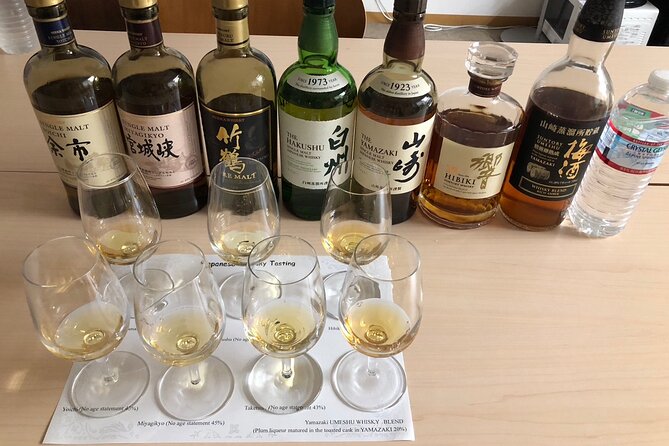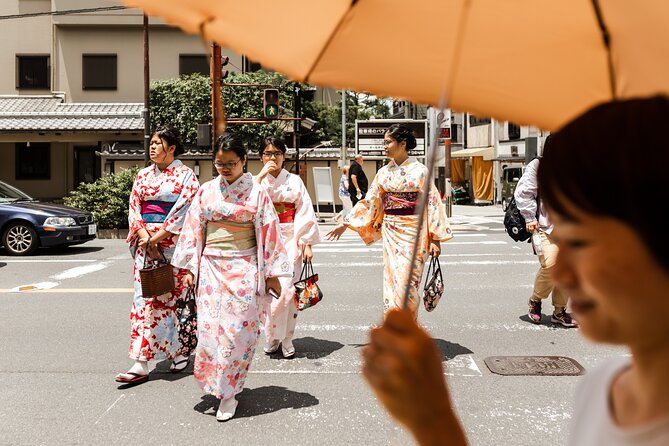In the hustle and bustle of modern life, finding moments of tranquility and elegance can be a rarity. However, the Day-Bonsai & Sencha Tea Experience: Pastime of the Literati offers a unique opportunity to step into a world where time seems to slow down, and the beauty of nature takes center stage.
This tour, operated by Tourism Designers Co., Ltd., invites travelers to explore the captivating art of bonsai cultivation and the delicate art of sencha tea preparation. But what exactly is the allure of these ancient Japanese traditions? And what can participants expect from this extraordinary journey?
Discover the answers as we explore the world of bonsai and sencha tea, where a world of serene beauty awaits.
Quick Takeaways
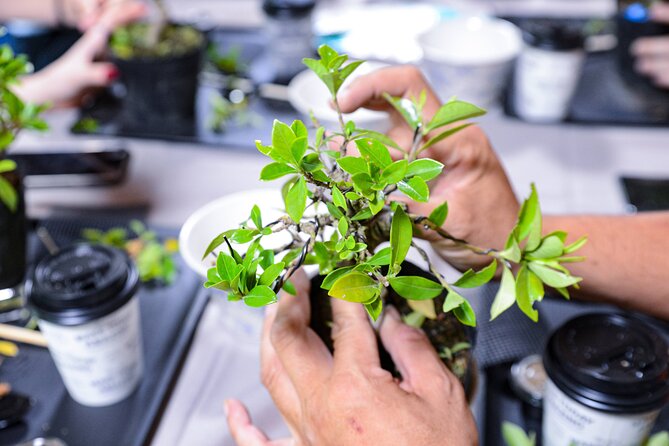
- Bonsai originated in China and evolved into an art form in Japan, symbolizing harmony between man and nature.
- Sencha tea is an important part of Japanese culture, symbolizing purity and tranquility.
- Bonsai cultivation requires patience, skill, and an understanding of natural growth patterns.
- The tea ceremony etiquette and the practice of enjoying sencha tea can create a serene and meaningful experience, promoting inner calm and connection with nature.
History of Bonsai
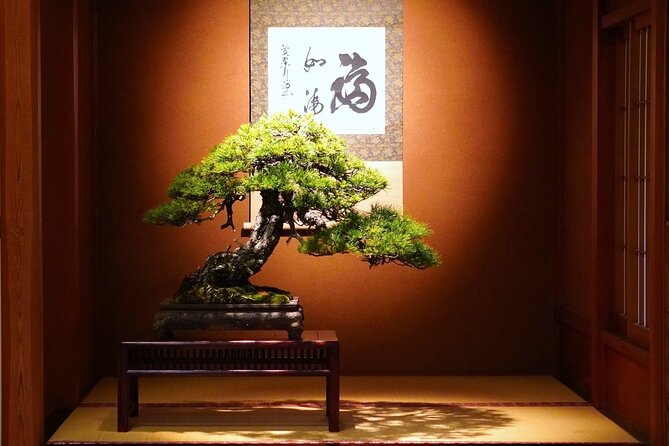
The history of bonsai can be traced back to ancient China, where miniature trees were cultivated and admired for their beauty and symbolism. Bonsai cultivation began as an art form practiced by the elite class, with the trees serving as representations of nature’s grandeur. These carefully sculpted trees were seen as a reflection of the harmony between man and his surroundings.
Bonsai trees weren’t only appreciated for their aesthetic appeal, but also held deep cultural symbolism. They were believed to bring good fortune, longevity, and prosperity to their owners. Bonsai cultivation eventually spread to Japan, where it evolved into a unique and highly revered art form.
Today, bonsai continues to captivate enthusiasts and serve as a testament to the delicate balance between human creativity and the natural world.
Significance of Sencha Tea
Sencha tea holds great significance in Japanese culture, symbolizing purity, tranquility, and the essence of the natural world. Its cultural importance can be seen in various aspects of Japanese society, from traditional tea ceremonies to everyday rituals.
The significance of Sencha tea is rooted in its production process, which involves steaming the tea leaves to preserve their natural flavors and nutrients. This method not only enhances the taste and aroma of the tea but also reflects the Japanese belief in harmony with nature.
Sencha tea is also known for its health benefits, as it’s rich in antioxidants and can improve digestion and promote relaxation.
Traditional Bonsai Techniques
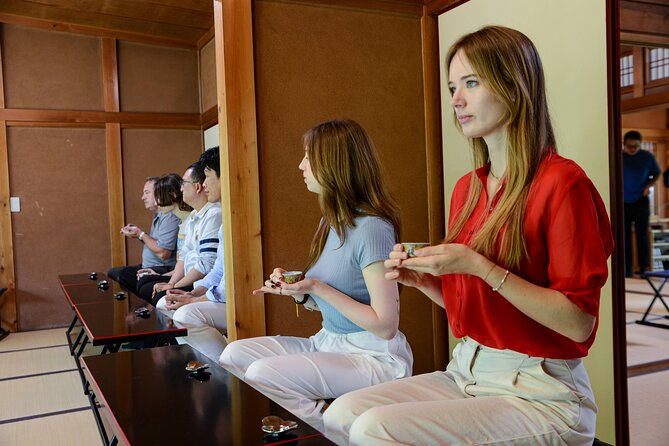
In the realm of Japanese cultural traditions, another artform that captivates and showcases the harmony between humans and nature is the practice of traditional bonsai techniques.
Bonsai cultivation is a meticulous process that involves carefully pruning and shaping miniature trees to create a sense of harmony and balance. These techniques have been honed and passed down through generations, with practitioners dedicating years to perfecting their craft.
The art of bonsai requires patience, skill, and an understanding of the tree’s natural growth patterns, as well as the ability to envision and create a miniature landscape. Just as tea tasting techniques require a keen sense of taste and aroma, bonsai cultivation demands a keen eye for detail and an appreciation for the beauty of nature in miniature form.
Tea Ceremony Etiquette
During the traditional tea ceremony, participants engage in a series of carefully choreographed rituals that emphasize respect, harmony, and mindfulness. The tea ceremony etiquette plays a crucial role in creating a serene and meaningful experience for both the host and your.
Here are some key aspects of tea ceremony etiquette:
- Bowing: Participants bow to each other as a sign of respect before and after the ceremony.
- Seating arrangement: Guests are seated in a specific order, usually determined by their social status or seniority.
- Tea pouring: The host carefully prepares and pours the sencha tea, following precise movements and gestures.
- Tea drinking: Guests hold the teacup with both hands as a sign of appreciation and savor the flavors of the sencha tea.
Bonsai and Zen Philosophy
The art of bonsai is deeply rooted in Zen philosophy, embodying the principles of harmony, mindfulness, and respect just like the tea ceremony.
Bonsai cultivation requires patience, focus, and a deep understanding of nature. As bonsai artists carefully shape and prune the miniature trees, they practice mindfulness, being fully present in the moment and paying close attention to every detail. This meditative process not only creates a beautiful work of art but also cultivates a sense of inner calm and tranquility.
Similarly, the act of preparing and enjoying sencha tea can be a form of meditation. The ceremony involves carefully brewing and serving the tea, savoring each sip while being fully present in the experience.
Both bonsai and sencha tea offer opportunities for mindfulness and meditation, allowing individuals to find peace and connection with the natural world.
Health Benefits of Sencha Tea

Sencha tea offers a multitude of health benefits, making it a popular choice for those seeking a refreshing and nourishing beverage. Here are some of the benefits of drinking sencha tea:
- Boosts the immune system: Sencha tea contains antioxidants that help strengthen the immune system and protect the body against free radicals.
- Supports heart health: The catechins found in sencha tea have been shown to reduce the risk of heart disease by lowering blood pressure and cholesterol levels.
- Enhances mental alertness: Sencha tea contains caffeine, which can help improve focus, concentration, and memory.
- Aids in weight management: Sencha tea can help boost metabolism and promote weight loss when combined with a healthy diet and exercise.
To prepare sencha tea, simply steep the tea leaves in hot water for a few minutes. There are various varieties of sencha tea available, including Fukamushi sencha, which is steamed longer for a richer flavor, and Gyokuro, which is shaded before harvesting for a sweeter taste.
Bonsai and Sencha Tea Pairing
Pairing the artistry of bonsai with the delicate flavors of sencha tea creates a harmonious blend of visual and sensory delight. Bonsai cultivation, with its meticulous pruning and shaping techniques, mirrors the attention to detail required in the preparation of sencha tea.
As the tea leaves are carefully selected, steamed, and rolled to preserve their vibrant green color and fresh taste, bonsai artists meticulously trim and shape their miniature trees to achieve balance and natural beauty.
When it comes to tea tasting techniques, the pairing of bonsai and sencha tea encourages a mindful approach. Sipping on the fragrant, grassy notes of sencha tea while admiring the intricate details of a bonsai tree creates a serene and contemplative experience, allowing one to fully appreciate the artistry and craftsmanship involved in both.
Common questions
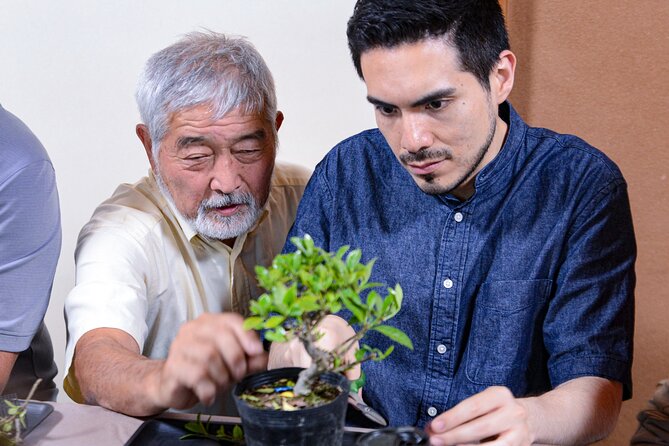
What Is the Maximum Number of Participants Allowed for the Day-Bonsai & Sencha Tea Experience?
The maximum number of participants for the Day-Bonsai & Sencha Tea Experience is eight. Unfortunately, the experience is not wheelchair accessible.
Is the Tour Wheelchair Accessible?
The tour is not wheelchair accessible. However, there are alternative experiences available for those with mobility issues. Please contact Viator Help Center for more information and assistance.
How Can I Confirm My Booking for the Day-Bonsai & Sencha Tea Experience?
To confirm a booking for the Day-Bonsai & Sencha Tea Experience, travelers can easily do so by selecting their preferred date and payment option on the website. It’s a simple process that ensures a spot on this unique tour.
What Is the Cancellation Policy for the Day-Bonsai & Sencha Tea Experience?
The cancellation policy for the Day-Bonsai & Sencha Tea Experience allows for a full refund if canceled at least 24 hours in advance. However, no refund is given for cancellations made less than 24 hours before the start time. The maximum number of participants allowed is 8.
Are Changes to the Booking Accepted Less Than 24 Hours Before the Start Time of the Day-Bonsai & Sencha Tea Experience?
Changes to the booking for the Day-Bonsai & Sencha Tea Experience are not accepted less than 24 hours before the start time. Plus, there is a maximum of 8 participants for this activity.
The Sum Up
Set out on a captivating journey into the world of bonsai and sencha tea with the Day-Bonsai & Sencha Tea Experience: Pastime of the Literati.
Discover the rich history and techniques of bonsai cultivation, while indulging in the refreshing flavors and health benefits of sencha tea.
This intimate tour offers a personalized experience, allowing you to learn about these ancient Japanese traditions.
Don’t miss the opportunity to explore the elegance and tranquility of bonsai and sencha tea.



